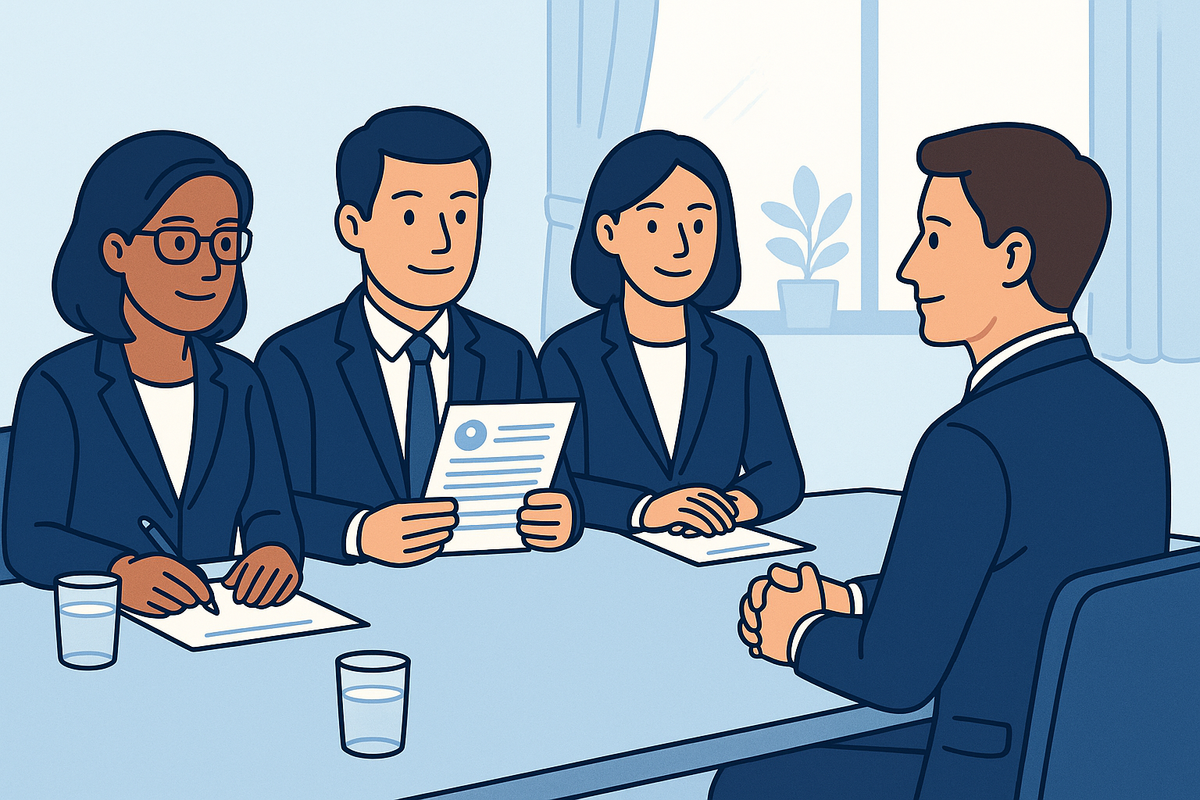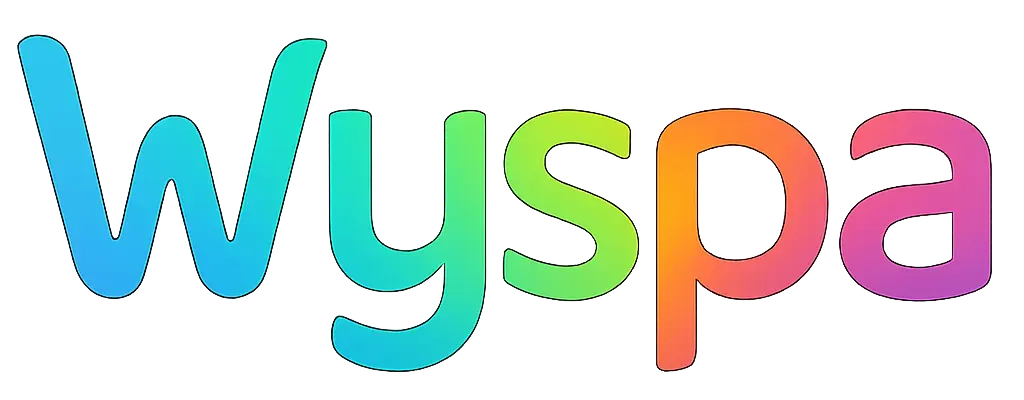How to Prepare for a Panel Interview: The Ultimate Guide

TLDR: 10 Essential Tips for Panel Interview Success
- Research all panelists - Look them up on LinkedIn and understand their roles
- Practice with the STAR method - Structure answers using Situation, Task, Action, Result
- Bring extra copies of your resume for everyone, plus a few more
- Balance eye contact with all panel members, not just the person who asked the question
- Address panelists by name when answering their specific questions
- Prepare more examples than for a standard interview - you'll face more follow-up questions
- Ask thoughtful questions that engage different panel members based on their roles
- Stay calm under pressure - panel interviews test how you handle stress
- Practice with mock interviews to build confidence and polish your answers
- Send personalized thank-you notes to each interviewer within 24 hours
Why Panel Interviews Are Different (And More Challenging)
Walking into a room where multiple people are waiting to interview you can feel intimidating. Unlike a one-on-one conversation, panel interviews present unique challenges that require special preparation.
Panel interviews typically involve two or more interviewers questioning you simultaneously. The panel might include your potential supervisor, HR representatives, team members, and other stakeholders. According to recent research, panel interviews are increasingly common in 2025, especially for senior positions and roles requiring extensive collaboration.
Companies use panel interviews for several practical reasons:
- Efficiency: Multiple decision-makers can evaluate you at once, streamlining the hiring process
- Diverse perspectives: Different team members can assess you from varied angles
- Stress testing: They can observe how you handle pressure and engage with different personalities
- Team dynamics: They can evaluate how well you'll fit with the existing team culture
Understanding these motivations will help you better prepare for what's coming.
Before the Interview: Essential Preparation Steps
Research Each Panelist Thoroughly
Knowing who you're speaking with is one of the most powerful ways to stand out in a panel interview. When scheduling the interview, please ask for the names and roles of everyone there.
Once you have this information:
- Look up each panelist on LinkedIn
- Understand their role in the company
- Note any shared connections or interests
- Identify their likely priorities and concerns based on their position
This research allows you to tailor your answers to address various stakeholders' perspectives and build rapport more effectively.
Master Your STAR Stories
Panel interviews often involve behavioral questions that ask about past situations. The STAR method provides a clear structure for your answers:
- Situation: Briefly describe the context
- Task: Explain your responsibility or challenge
- Action: Detail the specific steps you took
- Result: Share the positive outcome and what you learned
Prepare at least 5-7 STAR stories covering different competencies like leadership, teamwork, problem-solving, conflict resolution, and innovation. Having these ready will help you respond confidently to various questions.
Prepare Extra Materials
Always bring more materials than you think you'll need:
- At least one copy of your resume for each panelist, plus 3-4 extras
- Business cards, if you have them
- A notepad for taking notes
- Portfolio samples, if relevant to your field
Having these materials ready demonstrates professionalism and ensures you're prepared for any scenario.
During the Interview: Techniques for Success
Making a Strong First Impression
The first few minutes of a panel interview set the tone for the entire conversation:
- Arrive 10-15 minutes early to collect yourself
- Greet each panelist individually with a firm handshake
- Make eye contact and repeat their names as you're introduced
- Wait to be seated until invited
- Maintain good posture throughout the interview
Remember that first impressions form quickly, so project confidence from the moment you enter the room.
Mastering Panel Communication Dynamics
Communicating effectively with multiple interviewers requires special attention:
- When answering a question, initially focus on the person who asked it
- Then broaden your eye contact to include other panel members
- Address panelists by name when referencing their questions or comments
- Be aware of non-verbal cues from all panel members
- Speak clearly and at a moderate pace so everyone can follow
Balance is key—make sure no one feels excluded from your attention.
Handling Rapid-Fire and Follow-Up Questions
Panel interviews often involve more intensive questioning:
- Listen carefully to each question before responding
- Take a moment to organize your thoughts if needed
- Answer thoroughly but concisely
- Be prepared for immediate follow-up questions
- Don't be afraid to ask for clarification if a question is unclear
If multiple questions come simultaneously, acknowledge and address them systematically, or ask which to prioritize.
Asking Thoughtful Questions
Your questions reveal as much about you as your answers. Prepare questions that:
- Show you've researched the company
- Demonstrate interest in the role
- Address different panel members based on their expertise
- Explore team dynamics and culture
For example: "Sarah, as the marketing director, how do you see this role contributing to the upcoming product launch you mentioned earlier?"
After the Interview: Follow-Up Strategies
Personalized Thank-You Notes
Within 24 hours of your interview, send individual thank-you notes to each panel member:
- Reference specific points from your conversation with that person
- Express appreciation for their time and insights
- Reinforce your interest in the position
- Include any additional information you promised to provide
Personalization is crucial—avoid sending identical notes to each panelist, as they may compare them.
Self-Assessment and Learning
Use the panel interview as a learning opportunity:
- Reflect on which questions were most challenging
- Consider how well you connected with different panel members
- Note any areas where you could improve
- Update your preparation strategy for future interviews
Even if you don't get the job, the experience provides valuable insights for future opportunities.
Common Panel Interview Questions and How to Answer Them
Tell Us About Yourself
This question often opens panel interviews. Structure your response to be concise (1-2 minutes) and relevant:
- Begin with your current role and key responsibilities
- Highlight 2-3 significant accomplishments relevant to the position
- Briefly mention your educational background if relevant
- Connect your experience to why you're interested in this specific role
You can focus on professional information rather than personal details, unless they directly relate to the job.
Why Do You Want to Work for Our Company?
This question tests your research and genuine interest:
- Reference specific company values, projects, or achievements that resonate with you
- Connect these elements to your career goals and values
- Mention any positive interactions with company representatives or products
- Express enthusiasm about contributing to specific company initiatives
Avoid generic answers that could apply to any company.
Describe a Challenging Situation and How You Handled It
This classic behavioral question is perfect for the STAR method:
- Choose a relevant challenge that demonstrates valuable skills for the role
- Explain the context clearly but briefly
- Focus most of your answer on your specific actions
- Highlight positive results and lessons learned
- Connect the experience to how you'd handle challenges in the new role
Be honest about difficulties while emphasizing your problem-solving abilities.
How Would You Handle Disagreement Within a Team?
Panel interviews often explore team dynamics:
- Describe your communication approach during conflict
- Emphasize listening skills and respect for diverse perspectives
- Share a brief example where you successfully navigated a disagreement
- Highlight how you focus on shared goals and finding common ground
- Mention any relevant conflict resolution training or techniques you use
Could you show that you view disagreement as an opportunity for better solutions rather than something to avoid?
Leveraging Technology to Prepare for Panel Interviews
Modern interview preparation has evolved beyond simply practicing in front of a mirror. Today's job seekers can access sophisticated tools to sharpen their interview skills.
AI-powered interview preparation platforms can help you practice answering common panel interview questions and receive objective feedback on your responses. These tools analyze your answers, body language, and speaking patterns to provide insights on areas for improvement.
One such tool gaining popularity in 2025 is Wyspa (wyspa.app), an AI-powered web application explicitly designed for interview preparation. What sets Wyspa apart is its ability to create customized mock interviews based on your selected job domain, with options to focus on specific areas relevant to panel interviews.
Wyspa generates AI-driven questions tailored to your field, allowing you to respond via audio recording. The AI then evaluates your answers across multiple dimensions:
- Content relevance and completeness
- Speaking pace and clarity
- Word choice and professionalism
- Overall impression
Wyspa is particularly valuable for panel interview preparation because it simulates the pressure of responding to multiple perspectives and follow-up questions. The platform's "Real Interview" mode creates a live, simulated experience where you can practice maintaining composure while addressing complex questions, precisely what you'll need for a panel setting.
Using tools like Wyspa for just 30 minutes daily in the week before your panel interview can significantly boost your confidence and polish your responses. All you need is to sign up for an account and start practicing in under a minute.
Conclusion: Putting It All Together
Panel interviews may be more challenging than standard interviews, but proper preparation offers greater opportunities to showcase your abilities to multiple decision-makers simultaneously.
Remember these key takeaways:
- Thorough research and preparation are essential
- Practice answering questions using the STAR method
- Engage equally with all panel members
- Follow up with personalized thank-you notes
By implementing the strategies in this guide and utilizing modern preparation tools, you'll be well-positioned to turn your following panel interview into a job offer.
Good luck, and remember—panel interviews aren't designed to trick you, but to help you find the best fit for the company and your career goals.
